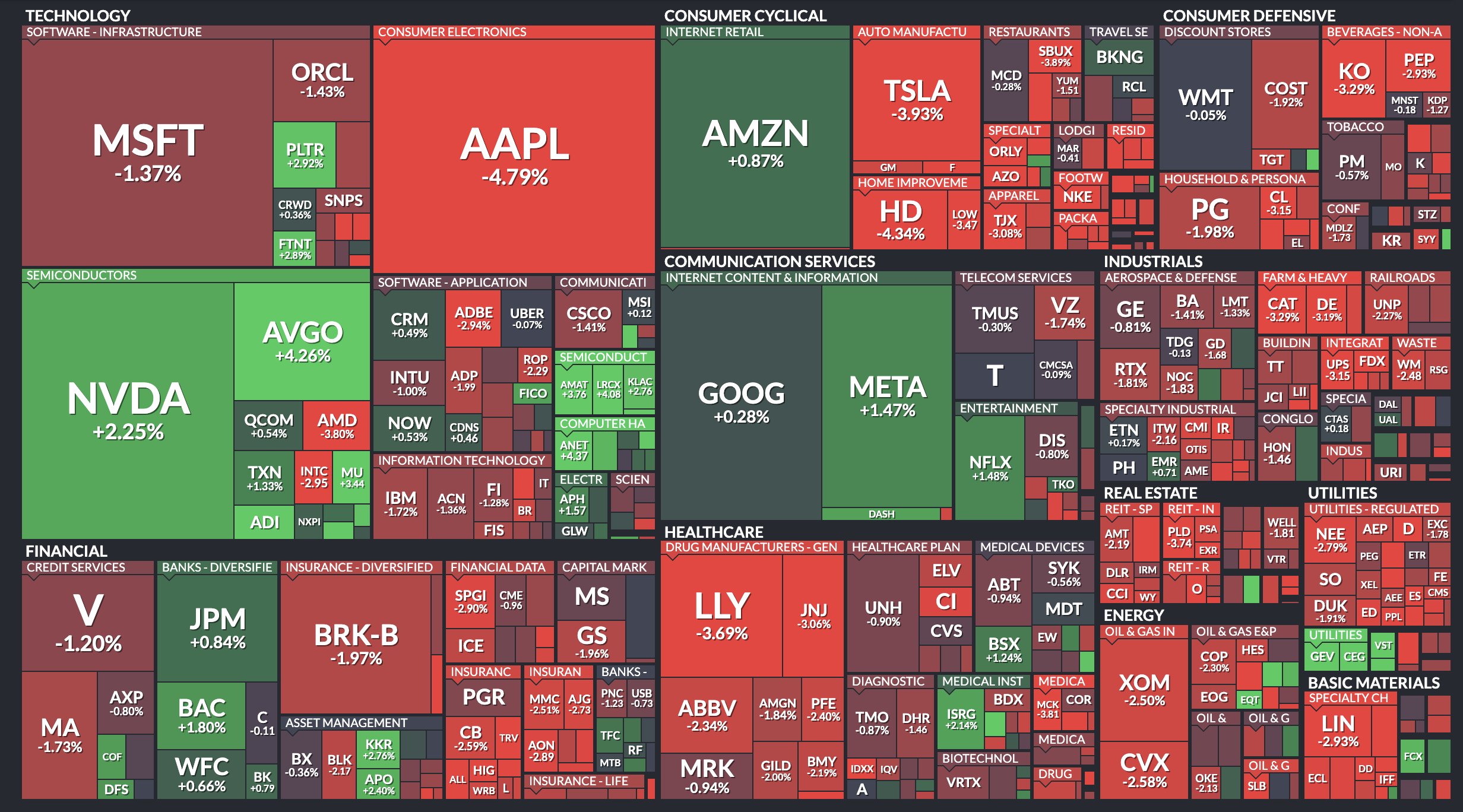
A universal tariff went into effect Saturday after Trump signed an executive order last week declaring “liberation day” for America.
The fallout over President Donald Trump’s new tariffs continued to rock global markets on Monday, with Germany’s Dax falling 9% and London’s FTSE dropping about 5%.
The damage was even more severe across Asia, where Japan’s Nikkei 225 closed down 7.9% and Hong Kong’s Hang Seng plummeted nearly 12%. Chinese tech giants Alibaba and Tencent were hammered, falling more than 14% and 10% respectively.
On Sunday evening, US stock futures fell after a brutal two-day stretch on Wall Street last week that erased over $5.4 trillion in market value.
Dow futures were down 1,250 points (3.3%), S&P 500 futures falling 3.7%, and Nasdaq futures plunging 4.6%.
Stocks are expected to open sharply lower Monday, putting the S&P 500 on the precipice of a decline of 20% from its peak—an ominous sign for investors and perhaps the broader economy.
Oil prices also plunged below $60 per barrel for the first time since April 2021, and even Bitcoin, which had surged above $100,000 after Trump’s election victory, tumbled 5.6% to $78,736.
When asked about the market reaction aboard Air Force One on Sunday, Trump declined to make predictions.
“What’s going to happen with the market? I can’t tell you. But I can tell you, our country has gotten a lot stronger, and eventually it’ll be a country like no other,” he told reporters.
A universal tariff went into effect Saturday after Trump signed an executive order last week declaring “liberation day” for America, for what the president claims has been decades of US interests being “looted, pillaged, raped and plundered” by other nations.
Trump said he has been fielding calls from tech executives and world leaders over the weekend to negotiate on tariffs.
“I’ve spoken to many countries. They all want to make deals,” he said. “Just so you understand the power of what I’m doing. Every country is calling and being very solicitous, very, very nice and being very nice.”
However, economic analysts paint a more concerning picture. JPMorgan estimates the tariffs will increase taxes on Americans by $660 billion annually and add 2% to U.S. inflation.
The nonpartisan Tax Foundation projects the average American household will pay $2,100 more per year for goods, with the average import tax surging from 2.5% last year to 19% this year, the highest since 1933.
Meanwhile, Prime Minister Benjamin Netanyahu is scheduled to meet with Trump later today to discuss, among other things, the 17% tariff against Israel.
In the hopes of gaining favor with the administration before Trump rolled out his tariff plan, the Israeli government eliminated all tariffs on US goods. However, according to Channel 12, the move came too late for US officials to backpedal on their new economic vision for America.
The post Wall Street braces for ‘Black Monday’ as Trump’s tariffs hammers global markets appeared first on World Israel News.